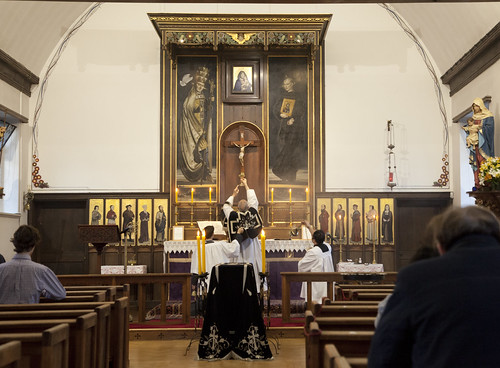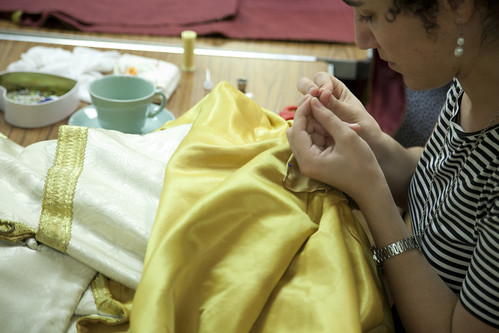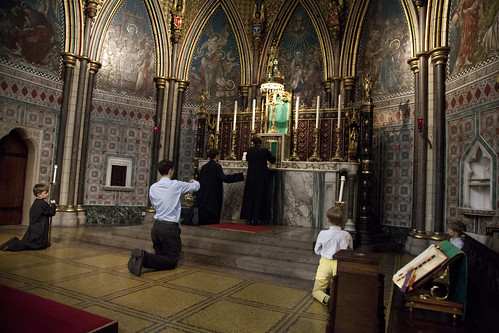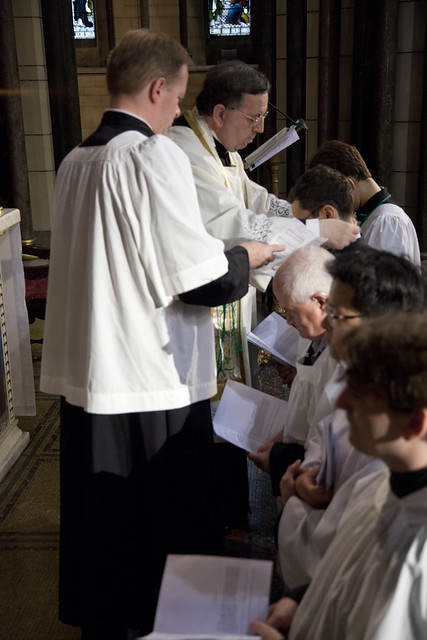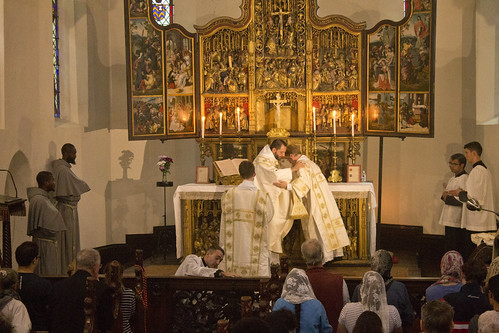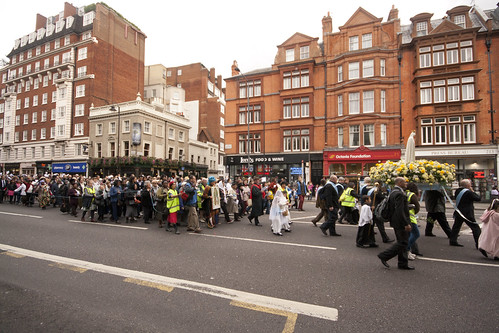Chairman's Blog
Online stole making course from the Guild of St Clare, 30th October
 |
| An 'off line' Guild event |
Photos Masses in Oxford
We had two Sung Masses last week: for St Michael the Archangel, and a Requiem for someone who died during the Coronavirus epidemic. Both were accompanied with polyphony directed by Dominic Bevan.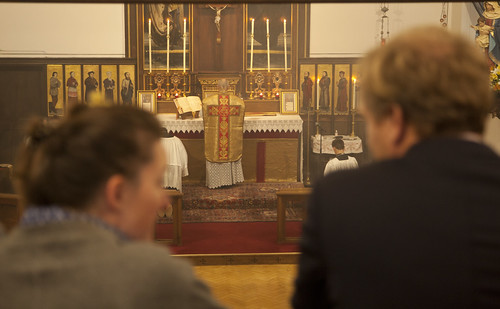
With thanks to Fr John Saward, priest in charge, and the multitasking MC Richard Pickett.
Support the Latin Mass Society
New Guild of St Clare video: a large patch
Support the Latin Mass Society
Students protest about Christian conference
The fact that the event had taken place at all only became known to the college’s radicalized students when one of them found a flyer from the event lying around. Since the students were not in residence at the time, they missed the chance to be upset by hearing any of the talks or discussions, or traumatized by meeting any of the attendees. They had to make do with their distress at the fact that the college’s hallowed meeting rooms and corridors had felt the presence of a wider range of views than has become usual.
Read the whole thing there.
Server training and vestment mending at Spanish Place
Our activities at St James' Spanish Place were jolly affairs as usual on Saturday, and well attended. The Guild of St Clare vestment making and mending was in the basement, and the Society of St Tarcisius server training was in the church upstairs.
Fr Andrew Southwell, a priest of Southwark Archdiocese familiar from the St Catherine's Trust Summer School who has been in Rome doing studies but is currently in London, was able to enroll five new members of the Society of St Tarcisius, including a Senior MC, who is our MC at the Monday evening Masses in Corpus Christi Maiden Lane.
We have another such event booked, on Saturday 20th November: what you need to know is here (for servers) and here (for the vestment mending).
Support the Latin Mass Society
Who’d like to talk about Socrates?
Socratic Seminars: October 2021
I am returning to these after a break over the Summer. I have been doing them since January 2021 and have an established pattern, alternating different dialogues to discuss in a series of four seminars.
The idea is that these are open to anyone over 16, regardless of prior knowledge, and take place on line, for a modest fee. The early dialogues are works of real philosophical value but presented in a way designed (I imagine) to engage people without prior training: they are the training. These seminars have been satisfying for me and have engaged the interest of a range of participants: at any rate they tend to come back for more.
This round the following are on offer:
For beginners:
Series 2: Apology (on Socrates' mission), the Crito (on political obligation), Charmides (on temperance), and Hippias Minor (on voluntary wrongdoing).
Intermediate (for those who've done either or both of the introductory series of seminars 1 and 2):
Series 4: Protagoras (virtue and its teachability) and Gorgias (oratory and justice), each divided into two parts.
More advanced (for those who’ve done either or both of the intermediate series of seminars, 3 and 4):
Series 6: Symposium (on eros) and Parmenides (on the Forms), each divided into two parts.
I teach on Thursdays, we find a time convenient to each person in each seminar. Numbers between two plus plus me to five plus me.
I hope to start on Thursday 7th October.
Email me to register your interest. Joseph.shaw99 AT gmail.com
More information can be found here.
A Sacristan's Reflections on the Walsingham Pilgrimage
 |
| Charles Bradshaw assists Fr Henry Whisenant with the Blessing of Pilgrims |
Rosary Crusade of Reparation, London, 9th October
Please support this! Always a wonderful event.
Server training in London this Saturday: last call for bookings
This Saturday we are holding another Server Training day with the Society of St Tarcisius, in St James' Spanish Place, from 10:30am. We conclude at about 4pm.
25th September: St James' Spanish Place, London
(booking page) (info about the venue)
20th November: St James' Spanish Place, London
(booking page) (info about the venue)
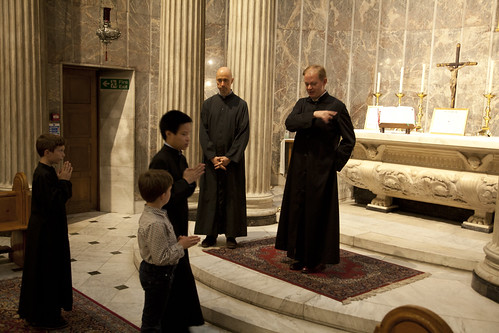
Support the Latin Mass Society
Videos from the Guild of St Clare
The Guild of St Clare is releasing a series of instructional videos about how to do simple repairs on vestments and a bit of domestic sewing--one episode to come will explain patching children's trousers.
This one explains how to thread a needle, and how to stitch down loose braid. Yes, pretty well anyone can do a simple thing like this, and with a bit of patience and practice, and the right advice, can do it to a decent standard.

